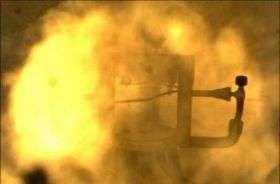Next-generation explosives: More power and safety without the pollution

Scientists in Germany are reporting development of a new generation of explosives that is more powerful than TNT and other existing explosives, less apt to detonate accidentally, and produce fewer toxic byproducts. Their study of these more environmentally friendly explosives is scheduled for the June 24 issue of ACS’ Chemistry of Materials.
In the new study, Thomas M. Klapötke and Carles Miró Sabate point out that conventional explosives such as TNT, RDX and HMX, widely-used in military weapons, are rich in carbon and tend to produce toxic gases upon ignition.
In addition to polluting the environment, these materials are also highly sensitive to physical shock, such as hard impacts and electric sparks, making their handling extremely dangerous. Greener, safer explosives are needed, the researchers say.
To meet this need, Klapötke and Sabate turned to a recently explored class of materials called tetrazoles, which derive most of their explosive energy from nitrogen instead of carbon. They identified two promising tetrazoles: HBT and G2ZT.
The researchers developed tiny “bombs” out of these materials and detonated them in the laboratory. The materials showed less sensitivity to shock than conventional explosives and produced fewer toxic products when burned, the researchers say.
Source: ACS















